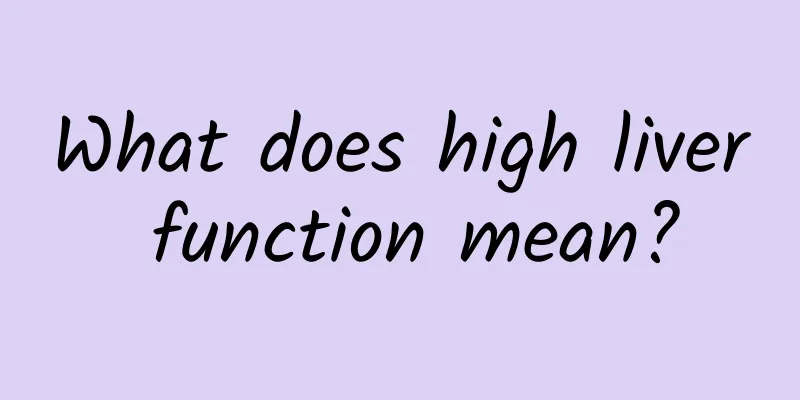I've been feeling nauseous lately.

|
I have been feeling nauseous and wanting to vomit recently. This symptom is consistent with many diseases. It is difficult to determine the specific cause simply by judging by nausea and vomiting. However, we can first have a comprehensive understanding of the main causes of the disease, and then make a comprehensive judgment based on other symptoms that appear in the body, so that we can know what is wrong with our health. So, why do I feel nauseous and want to vomit recently? Let’s take a look at the reasons below. The causes of nausea and vomiting are wide-ranging and include multiple factors involving almost every system. 1. Infection: viral acute gastroenteritis, bacterial acute gastroenteritis, acute viral hepatitis, appendicitis, cholecystitis, peritonitis, acute fallopian tube, pelvic inflammatory disease, etc. 2. Diseases of other abdominal organs (1) Organ pain: pancreatitis, cholelithiasis, kidney stones, intestinal ischemia, ovarian cyst pedicle torsion. (2) Gastrointestinal obstruction: pyloric obstruction (ulcer disease, gastric cancer, extraluminal tumor compression), duodenal obstruction (duodenal cancer, pancreatic cancer), intestinal adhesions, intussusception, strangulated hernia, Crohn's disease, intestinal tuberculosis, intestinal tumors, intestinal ascariasis, intestinal volvulus, superior mesenteric artery compression syndrome, output loop syndrome, gastrointestinal motility disorders (diabetic gastroparesis, non-diabetic gastroparesis), intestinal pseudo-obstruction (connective tissue disease, diabetic intestinal neuropathy, tumor-induced intestinal neuropathy, amyloidosis, etc.). 3. Endocrine and metabolic diseases: hyponatremia, metabolic acidosis, malnutrition, vitamin deficiency, diabetic acidosis, hyperthyroidism, hypothyroidism, hyperparathyroidism, hypopituitarism, hypoadrenalism, various endocrine crises, uremia, etc. 4. Nervous system diseases: central nervous system infections (encephalitis, meningitis), brain tumors, cerebral ischemia, cerebral hemorrhage, craniocerebral trauma, brain parasitic diseases, etc. 5. Physical and chemical factors such as drugs: anesthetics, digitalis, chemotherapy drugs, antibiotics, dopamine receptor agonists, non-steroidal anti-inflammatory drugs, theophylline, alcohol, radiation, etc. 6. Psychogenic vomiting, polyphagia nervosa, anorexia nervosa. 7. Vestibular diseases: motion sickness, Meniere's disease, and labyrinthitis of the inner ear. 8. Nausea and vomiting during pregnancy, hyperemesis gravidarum, and acute fatty liver of pregnancy. 9. Others: cardiopulmonary diseases (myocardial infarction, pulmonary infarction, hypertension, acute lung infection, cor pulmonale), urinary system diseases (acute nephritis, acute pyelonephritis, uremia), cyclical vomiting, postoperative nausea and vomiting, glaucoma, etc. There are many diseases that cause nausea and vomiting. Nausea and vomiting are only one of the symptoms of the disease. Therefore, strong antiemetic drugs that act on the vomiting center should not be used blindly before the cause is identified, otherwise the disease will be delayed. Only after the cause of vomiting is identified and on the basis of active treatment of the cause can necessary symptomatic treatment be carried out. 1. Gastrointestinal diseases Lesions in any part of the esophagus, stomach, duodenum, jejunum, ileum, colon and rectum may cause symptoms of nausea and vomiting. The most common causes are esophageal stenosis, esophageal cancer, achalasia, cardiac cancer, eosinophilic granuloma of the gastric antrum, giant ulcer or cancer of the gastric antrum, duodenal ulcer or stasis, small and large intestinal obstruction caused by various reasons, or acute inflammatory lesions of the stomach, small intestine or large intestine. Drug treatment is ineffective for vomiting caused by stenosis or obstruction due to benign or malignant lesions of the digestive tract. The vomiting symptoms will disappear only after dilation, stent placement or surgical treatment to relieve the stenosis or obstruction. For patients with achalasia, before dilation or surgical treatment, calcium channel antagonists or nitroglycerin can be taken orally half an hour before meals or sublingually 15 to 30 minutes before meals. This can improve vomiting and obstruction symptoms in the early stages; or botulinum toxin can be tried for local injection treatment of stenosis. For vomiting caused by acute inflammatory lesions of the gastrointestinal tract, antibiotics should be actively used, electrolyte imbalances should be corrected, and vitamins should be supplemented; for nausea and vomiting caused by gastrointestinal motility disorders, prokinetic agents such as mosapride can be used; if vomiting is caused by gastrointestinal spasm, anticholine drugs such as scopolamine can be used. 2. Liver, bile duct and pancreatic diseases are one of the common causes of nausea and vomiting. Nausea and vomiting are early symptoms of acute viral hepatitis, often accompanied by loss of appetite, aversion to greasy food, and upper abdominal fullness. With liver protection treatment and proper rest, nausea and vomiting can gradually disappear. Vomiting is also a symptom that often accompanies bile duct obstruction or colic. Vomiting will only stop when the bile duct obstruction or inflammation is eliminated. Acute pancreatitis is often accompanied by symptoms of nausea and vomiting. Vomiting will only be gradually relieved or stopped after measures such as gastrointestinal decompression and reducing the secretion of pancreatic juice and pancreatic enzymes are taken. 3. Central nervous system diseases include encephalitis, meningitis, brain tumors, brain parasitic diseases, cerebrovascular diseases and craniocerebral trauma caused by various reasons, which can cause increased intracranial pressure and lead to nausea and vomiting. One of the important treatment measures is to use drugs to reduce intracranial hypertension and alleviate brain cell edema. After dehydration treatment, not only the symptoms of vomiting can be improved, but more importantly, it plays a role in protecting or restoring brain cell function. 4. Vomiting caused by drugs Many drugs have adverse reactions that cause nausea and vomiting. Generally speaking, as long as the use of drugs that cause vomiting is stopped immediately, the vomiting symptoms will be alleviated until they disappear, so there is no need to use antiemetic drugs. Currently, combined chemotherapy or radiotherapy is often used in clinical practice for certain malignant tumors or malignant diseases of the blood system (such as leukemia, malignant lymphoma, multiple myeloma, malignant histiocytosis, etc.), or interventional treatment with anticancer drugs is used for certain malignant tumors. However, serious gastrointestinal adverse reactions may occur during or after treatment, the most prominent manifestations of which are nausea and vomiting. In order to prevent or alleviate this adverse reaction, antiemetic drugs can often be used for treatment. Commonly used drugs include ondansetron (Ondansetron) (trade name: Zofran), granisetron (trade name: Kangquan) and ondansetron. It must be pointed out that the use of these strong antiemetic drugs may also produce adverse reactions in the central nervous system, cardiovascular system or gastrointestinal tract, so the dosage and interval of the drugs should be strictly controlled. 5. Vomiting caused by neurological and mental factors . Psychological treatment is the key to vomiting caused by such reasons. First of all, the patient's mental and psychological disorders should be eliminated, and secondly, drug treatment can be used. Commonly used drugs are sedatives and gastrointestinal prokinetics. Severe cases can be treated with antidepressants such as doxepin or fluoxetine. The use of strong antiemetics such as ondansetron is contraindicated. |
<<: Sometimes the uterus hurts
>>: I have been having a lot of pain in my lower abdomen lately.
Recommend
Which part of the waist pain is a gynecological disease
Many people will experience symptoms of low back ...
Why does waist pain cause hair loss?
The pace of today's society is getting faster...
What is bloody stool?
Bloody stools refer to stools that contain some b...
Specific method of lowering androgen with Baishao Gancao Decoction
I believe that everyone is still relatively unfam...
Baby cold medicine
Babies are weak and have no ability to express th...
How to eliminate tissue edema
If edema occurs, it must be treated in time. Ther...
Dry pain behind the nose and upper throat
Dryness and pain appear behind the nose and on th...
How to make Bazhen Soup
Bazhen Decoction is a recipe of traditional Chine...
How to clear lymph blockage in the neck?
When swelling, wrinkles, and circles appear on th...
What are the symptoms of kidney deficiency? What are the more obvious symptoms of kidney deficiency?
Due to the fast pace of life and bad living habit...
What are the effects of peach pollen
Whether in ancient times or modern times, people ...
What is the antidote for benzene poisoning?
There is no good antidote for benzene poisoning, ...
How much saffron should be soaked in water for one drink?
Drinking saffron tea is a very simple and conveni...
What are the benefits of drinking black wolfberry for women
The nutritional value of black wolfberry is relat...
Dandelion Side Effects and Contraindications
As a traditional Chinese medicinal material that ...









